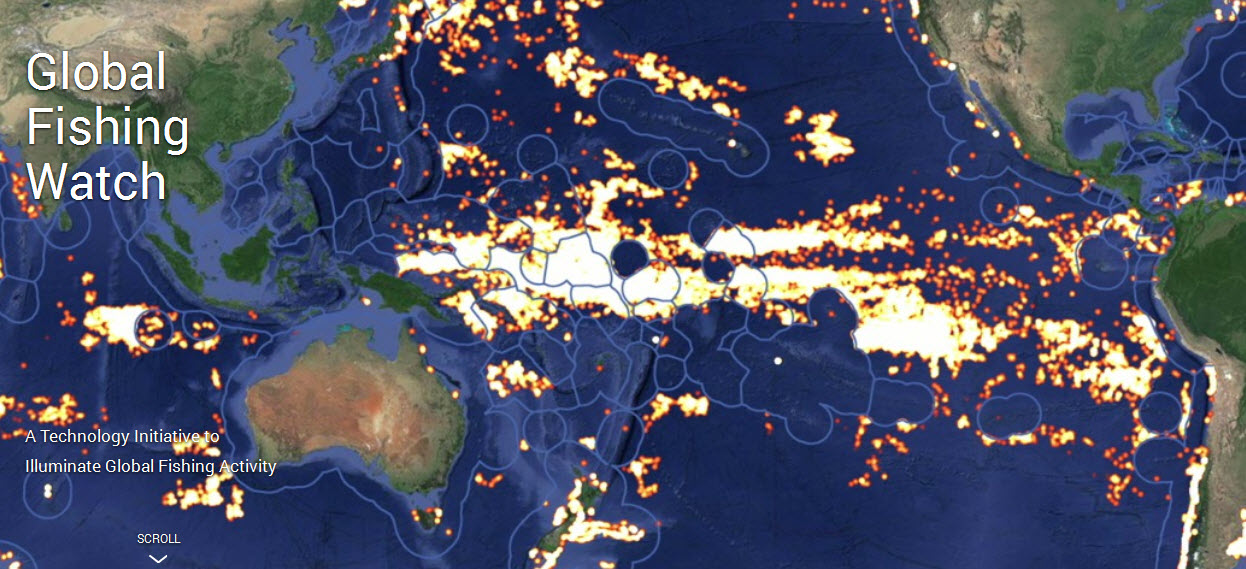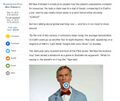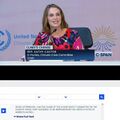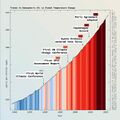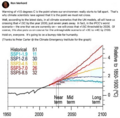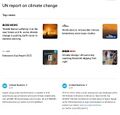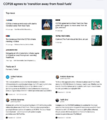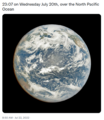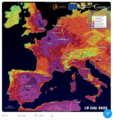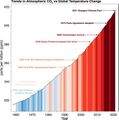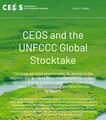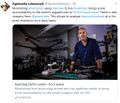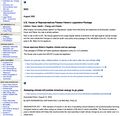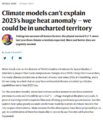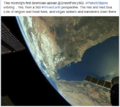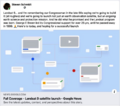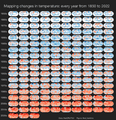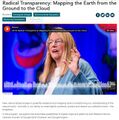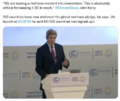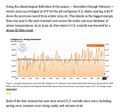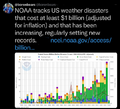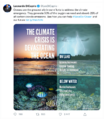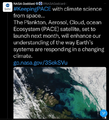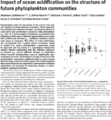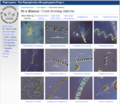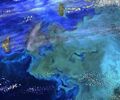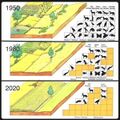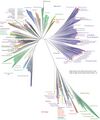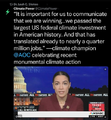Category:Fisheries
Mapping Sustainability in the Seas and Oceans
Toward Envisioning 'the Commons' on the High Seas and in International Waters
● https://en.wikipedia.org/wiki/Fishery
● http://www.globalfishingwatch.org/
○ ○ ○ ○ ○ ○ ○ ○ ○ ○ ○ ○ ○ ○ ○ ○ ○ ○ ○ ○ ○ ○ ○ ○ ○ ○ ○ ○ ○ ○
Global Commons, Fisheries and the High Seas
● Pew Environment Group Urges U.N. to Correct Course
Update (2017): Nations Will Start Talks to Protect Fish of the High Seas
As the United Nations meets in 2010 to discuss the state of high seas fisheries management, two independent, peer-reviewed studies reveal that ineffective international management is undermining the future of high seas fisheries, fish populations and the health of marine ecosystems.
One study — published online by the journal Science — finds that governments have been ineffective in stopping illegal fishing. The Pew Environment Group, which prepared this first-ever comprehensive report on the topic, reached that conclusion by evaluating government actions regarding documented vessels, known to fish illegally, that enter ports with fish from the high seas.
The second study — published online in the journal 'Marine Policy' — is the first to evaluate 18 regional fisheries management organizations (RFMO), the intergovernmental bodies tasked with managing fishing on the high seas. The study showed that the RFMOs have failed to halt dramatic declines of fish stocks.
The Pew study focused on the role that Port States can play in combating illegal, unreported and unregulated (IUU) fishing. Port States can significantly reduce the profitability of vessels engaged in IUU fishing by denying entry, the landing of fish or port services. The study assessed how well Port States complied with measures adopted by eight RFMOs and directed against vessels found to carry out or support IUU fishing over the last six years. The analysis of port visits made by vessels showed that:
Insufficient or out-of-date data made identifying illegal vessels difficult
For those Port State governments under obligation to implement measures against illegal vessels, these obligations were fulfilled in only one out of every four cases; and Illegal vessels can avoid sanctions by escaping to another region, due to the lack of global consistency in Port State measures.
"Our research shows that the current system leaves significant loopholes for those engaging in IUU fishing to exploit," said Kristín von Kistowski, a senior advisor to the Pew Environment Group who manages the Port State Performance research project. "To fix the worldwide problem of IUU fishing, we need a system with much more transparency, accountability and global coordination." Previous research found that IUU fishing caught an estimated 11 to 26 million tons of fish, worth as much as $23.5 billion annually and the equivalent of about one-fifth of the global reported catch.
The study in 'Marine Policy', from University of British Columbia researchers Sarika Cullis-Suzuki and Dr. Daniel Pauly, is the first to quantitatively score the performance of RFMOs to determine how well they manage high seas fisheries "on paper" versus "in practice." The scientists found that two-thirds of the commercial fish stocks under RFMO management are either severely depleted or overfished. Their results show that RFMOs are not meeting best practice standards and are failing to halt declines.
"We found that many RFMOs lack a general commitment to set and implement conservation measures to keep fish populations at sustainable levels," said Cullis-Suzuki. "Even if the mandate of an RFMO emphasized conserving fish stocks, the end result often did not reflect that conservation goal. We concluded that RFMOs need to be more accountable and take steps toward improving management if they want to fulfill their mandates."
● The Commons -- https://www.greenpolicy360.net/w/The_Commons
○ ○ ○ ○ ○ ○ ○ ○ ○ ○ ○ ○ ○ ○ ○ ○ ○ ○ ○ ○ ○ ○ ○ ○ ○ ○ ○ ○ ○
From the 'Northwest Atlantic Marine Alliance' (2015), discussing U.S. waters and sustainability of fisheries
by Niaz Dorry (20-years of working on fisheries and ocean issues)
● http://whofishesmatters.blogspot.com/2015/08/niaz-top-ten-myths-about-fisheries.html
"Top ten myths" about fisheries:
10. We need stability, so we can’t change the current system.
9. We need an “economically efficient” fleet to feed people and save the fish.
8. People don’t want to think. They just want to know what they can eat.
7. There are not enough margins to pay fishermen a fair price.
6. US fisheries laws and policies are working.
5. There is not enough wild fish to feed people, so we need industrial aquaculture.
4. “But fisheries are so complicated”.
3. Fisherman must be able to compete in the global economy.
2. Only those who “own” the “resource” will take care of it.
1. There are too many boats chasing too few fish.
Want to go deeper into thinking about these vital issues? Here you go:
10. We need stability, so we can’t change the current system.
This is code word for maintaining status quo. In some ways, they are right; we can’t change the current system. At least not in ways that will matter, so at some point we will need to start from scratch. It’s like a bad batch of dough. Nothing you do is going to fix it. In the end, you’ll have a loaf of brick. Time to start anew. And this time, learn from past mistakes so as not to repeat them.
9. We need an “economically efficient” fleet to feed people and save the fish.
“Economically efficient” is another code word. It stands for cranking out as much fish as possible with the lowest operating costs. This is an antiquated way of defining efficiency and perpetuates the high-volume/low-value single-species extraction mentality that has brought us where we are today.
In my opinion, the most economically efficient boats are the ones who offer the highest returns to their communities, local economies, regional food systems, all the while having the smallest ecological footprint.
8. People don’t want to think. They just want to know what they can eat.
The surge in demand for food from smaller-scale, regionally based and sustainable farms has already busted this myth. People of all backgrounds and incomes are making food purchases based on what they value. In seafood, we've seen a huge growth in the popularity of Community Supported Fisheries (CSFs). But there are still assumptions made about who is buying fresh local fish - and why they are buying it.
So let's stop assuming that in communities of color, culturally diverse populations, and lower income communities, people aren't interested in having access to fresh seafood because they just want as many calories that their dollar can buy. And let's stop assuming that more affluent seafood eaters can't think beyond the basics that a wallet card provides. It's insulting all around.
7. There is not enough margin to pay fishermen a fair price.
I’m sure there is some truth to this when it comes to some of those in the seafood value chain. But much like any other part of our society, it’s the priorities, not the margins that dictate whether fishermen get a fair price for their catch. There are existing operations that buy seafood from fishermen and from there, deal with the rest of the supply chain with pre-determined profit margins built into their calculations.
We’ve spoken with some of these operations and we have yet to hear a good answer that explains why the same profit margin isn’t offered to the fishermen. After observing this business for over 20 years, I’ve come to believe there are ways to ensure fishermen get paid a fair price if not their cost of operation. We can't keep hoping that volume of fish caught will make up for not getting paid a fair price. Under this scenario, fishermen have no option but to ask for more fish. And let’s not forget those who work as crew, on docks, and in processing factories.
The current system has left many in the fishing industry in the red, while few are in the black. And it’s all about our priorities.
6. US fisheries laws and policies are working.
No. They. Are. Not.
What’s wrong with the US fisheries management system deserves its own Top Ten list. I’ll name the first three that come to mind as of this writing and will go deeper on the top 10 specifics later. Here they are:
Current policies promote privatization and consolidation, and are leading to excessive consolidation of fishing rights in the hands of fewer and fewer people and companies.
This is not just a social issue, as some say. This strategy undermines our collective ability to protect the marine ecosystem. Each time a sector of our society has been forced to get-big-or-get-out under similar strategies, it has failed at its core mission. Privatization, consolidation and concentration of our financial, healthcare, education, housing and land-based food production systems have universally failed. Yet similar policies are being pushed on the water and the vehicle is the national fisheries legislation – the Magnuson-Stevens Fisheries Conservation and Management Act. We’re renaming it the Fish Bill because just try remembering that long name. And calling it the “Magnuson Act” just doesn’t do it for us. We’re not trying to work on Mr. Magnuson; we’re working on what lives in the ocean and how we interact with them.
Health of fisheries is mostly determined in a single species context. In other words, under the current regulations, the health of the cod is determined in the absence of the health of its environment, its prey, its predators, water temperature, etc. We’ve had to work hard to push for true ecosystem based ways of managing the ocean, but until that becomes fully integrated into the law we’ll only see short lived trends on graphs not long lived, real change on the water or below its surface. I would venture to predict, that most of the so called “recoveries” we hear in the news will be future “overfished again” if we continue to treat the ocean as single species of fish magically swimming solo in a sea of other creatures and multiple impacts. I will acknowledge that some efforts are underway to adopt “ecosystem based management.” But these efforts will likely hit a wall unless mandates are articulated in the Fish Bill.
Under the current Fish Bill it is not required for fisheries managers to address impact of non-fishing activities such as climate change, persistent pollutants, mining, deforestation, toxic pollution, etc. When push comes to shove, fishing effort is the lever used to “correct course” when populations of marine animals show signs of trouble. Have you heard any public officials requiring oil drilling to be banned, more regulated, etc. to help the Bluefin tuna populations? Yet we know the fish was hit hard post BP Horizon disaster. And let’s talk about mercury. We know what it’s doing to us humans, but what is it doing to the tuna? Is it affecting its ability to find food? Hone in on its migration patterns? Have babies? Why doesn’t International Convention for the Conservation of Atlantic Tunas (ICCAT) demand an end to coal burning power plants or chlor-alkali facilities or PVC manufacturing to reduce mercury that ends up in the tuna’s flesh?
It’s worth noting that the Fish Bill is undergoing a reauthorization process in Congress. Although some believe the train has already left the station, we should remember that this train is known to make multiple stops, sometimes even back up, and often face major delays. Most of the time these stops, backups and delays are used as tactics for not taking action. I believe we can use these strategies to make sure we take the right course of action not just perpetuate a bad bill.
5. There is not enough wild fish to feed people, so we need industrial aquaculture.
I believe we catch enough fish to feed people. Just as we grow enough food to feed people. Just as with farming, access to seafood is more political than ecological. Just check out the food myths put out just this week by Food First. It was a happy coincidence that I wrote this when Food First’s piece came out. Some might even call it serendipity!
There are those who are deciding – and sometimes recommending – that we manage for the needs of those who already have other options. Below is the call to action from Environmental Defense Fund’s recent report. EDF is calling for a strategy of harnessing fishing rights to first and foremost benefit the “increasingly affluent and urban people…” Hm. Not sure where the rural fisherman fits into this picture who caught the fish, often having to lease the rights to fish from absentee “landlords,” and with shore side prices under tight control, and most of the money to be made from the seafood comes from this point forward, finding themselves arriving at the dock already in the red.
Sounds familiar? Much like the farmers who aren’t getting their cost of operation and who can’t afford to eat their own crops or meats, fishermen aren’t paid prices that cover their cost of operations and most of their catch leaves their community headed for those urban populations EDF speaks of. Policies such Catch Shares promoted by EDF have added other layers of costs to the fishermen making especially the small and medium scale fishermen to decide whether they get big or get out.
And where does the urban or rural poor fit into this picture?
4. “But fisheries are so complicated”.
I’ve come to believe the complications of fisheries management are all contrived to make everyone believe things are just sooooo complicated that the best solution is to throw in the towel and lap up whatever we’re sold.
Honestly, I think it’s pretty simple. Ignore everything you hear, figure out your values, and apply them to fishing and seafood.
If you think it’s important who grows your lettuce, how farm animals are treated, what’s in your food, who your banker is to your money’s safety, whether an absentee landlord is a good thing, whether fair pay is part of your sustainability definition, etc. then only buy seafood or consider fisheries/marine conservation policies that match those same values.
This means for the near future we have to become better critical thinkers, but that’s okay. We all can use the mental, and in many ways spiritual, exercise.
3. Fisherman must be able to compete in the current global economy.
No, they don’t. The current global economy is what brought us agribusiness. So we know that at least when it comes to our food, we are better off keeping an eye on fitting into our local and regional economy.
We now have new models - starting with Community Supported Fisheries and now expanding into the healthcare, schools, universities, and other institutions - that are creating opportunities for fishermen to think first about their role in the regional economies and food systems, and if there is anything left pump it into the global seafood market.
To date, we have been doing the opposite, and that’s not sustainable, equitable, profitable, or ecologically responsible.
2. Only those who will “own” the “resource” will take care of it.
First, let me start by saying that the Koch Brothers are amongst those who are investing heavily in the push for “ownership” based policies in fisheries and seafood. I encourage you to browse through this presentation of Seth Macinko of University of Rhode Island, an informative slide presentation and quick primer titled “Who Are These Guys?”
'Ownership' is a code word in favor of privatization of the ocean commons. It’s this argument that’s used to advocate for 'Catch Shares', or what used to be called 'Individual Transferable Quotas' till rebranded a few years ago. Let’s once again take stock of other aspects of our society that first started to consolidate into fewer and fewer players to later become privatized with the promise of better service: banking, healthcare, real estate, and agriculture.
We’ve lost our money, we’re sicker, homeless, and for one of the first times in history eating food that is actually killing us. And somehow we think the same kind of consolidation and privatization will save the ocean and our access to healthy seafood.
1. There are too many boats chasing too few fish.
No there aren’t. The Green Revolution argued there were too many farms, and they should be replaced by scales of operation that are “economically efficient” enough to feed the world. We got mega-farms that have left our soil drained; our wells and reservoirs tapped; food full of pesticides, herbicides, fungicides, antibiotics, hormones and whatever else; animals raised in unspeakable conditions and under horrifying cruelty; seeds locked up by corporations; toxic runoffs; food that often travels halfway around the world to get back to where it started; and, all the while pumping out unidentified food objects with the wrong calories. But hey. It’s cheap.
What the tide against the Green Revolution has taught us is that we need many more farms. Diversified farms. Farms owned by those rooted in their communities. Farms that treat the animals with love and respect. Farms that prioritize feeding people within a fathomable radius of where their food comes from. We need farmers like Jim Goodman who told Occupy Wall Street “they tell me I must feed the world. But I’m not going to. I wanna feed you. I want the world to feed itself. And they can.”
Let’s not confuse fishing with extracting, just like we can’t confuse farming with agribusiness. There is a difference between those who fish and those who extract seafood. My call to action to you is to make it your business to learn the difference and, if your aim is to save the wild ocean and you don’t oppose fishing for food, support those who fish.
We need more community based fishing operations. Small and medium scale boats, fishing for diversity of species, marketed to communities within a fathomable distance from where they tie up their boats. We need fishermen who bring awe to their work, and love for the marine animals they interact with even if they are headed to our dinner tables.
We need policies that support these fishermen, the infrastructure that keeps them going, and markets that honor whatever their gear brings to shore. We need fishermen, who like Jim, aren’t fishing to feed the world because they know the world can feed itself if given the opportunity for self-determination.
Our call to action is not to capitalize on nature to feed the overfed.
Our call to action is to honor community connections, generations of experience, intimate connection with the ocean, and deep culture of caring about the web of ecosystems that make up the global ocean commons that often graces us with the food we need.
○ ○ ○ ○ ○ ○ ○ ○
Subcategories
This category has the following 3 subcategories, out of 3 total.
E
O
W
Pages in category "Fisheries"
The following 15 pages are in this category, out of 15 total.
Media in category "Fisheries"
The following 150 files are in this category, out of 150 total.
- 3M lawsuit re forever chemicals - June 2023.png 603 × 600; 357 KB
- A scorching year, what about the 360 warming data.jpg 600 × 706; 106 KB
- About Baselines and Change.png 592 × 312; 33 KB
- Algae release -nikon-small-world-competition-2017-winners.jpg 640 × 576; 89 KB
- AskNatureAvatar s.png 200 × 200; 14 KB
- Biden re Earth Day 2023.png 640 × 400; 155 KB
- Bill Nye The Planet's on Fire.jpg 800 × 675; 106 KB
- Blue-green phyto swirling 2015.png 357 × 605; 409 KB
- California's kelp forests and coastal biodiversity diminished.png 532 × 754; 307 KB
- Carl Sagan at the Emerging Issues Forum - 1990.png 360 × 460; 192 KB
- Carl Sagan at the Emerging Issues Forum.png 747 × 600; 600 KB
- Carl Sagan, the atmosphere unifies and connects all of our world.png 360 × 390; 229 KB
- Chasing Coral.jpg 800 × 437; 65 KB
- Climate Change COP27 - Nov 11 2022 US Representatives.jpg 712 × 444; 54 KB
- Climate Change COP27 - Nov 11 Kathy Castor.jpg 712 × 710; 77 KB
- Climate Conferences 1979-2020.jpg 768 × 768; 121 KB
- Climate Emergency Institute - Oct 2022.png 610 × 600; 274 KB
- Climate News - Oct 28 2022.jpg 626 × 600; 88 KB
- Climate News Dec 4 2023 in Dubai.png 800 × 1,037; 649 KB
- Climate Plans Enforcement - Resources - GreenPolicy.png 768 × 897; 686 KB
- Climate poll - Florida.png 640 × 267; 36 KB
- ClimateNewsFlorida.jpg 448 × 191; 36 KB
- Connect with Nature.png 405 × 280; 17 KB
- COP27 'opening speech'.png 640 × 460; 160 KB
- COP28 News - Dec 13 2023.png 800 × 898; 410 KB
- CopernicusEU - Sentinel5P Atmosphere Monitoring Mission - 2.jpg 795 × 1,477; 654 KB
- CopernicusEU - Sentinel5P Atmosphere Monitoring Mission.png 583 × 465; 222 KB
- Coral bleaching Great Barrier Reef 2016.jpeg 630 × 472; 91 KB
- Coral growing-Mott Lab,Florida.jpg 800 × 382; 114 KB
- Coral reef rejuvenation-montage.png 569 × 236; 318 KB
- Cradle of Civilization - and climate change.jpg 640 × 360; 70 KB
- Cyanobacteria Prochlorococcus worldmapping MIT.jpg 473 × 321; 60 KB
- Democratic Party Climate Bill - Aug 2022.png 640 × 269; 70 KB
- Dove1 image.jpg 420 × 308; 26 KB
- DSCOVR EPIC - July 20 2022.png 532 × 612; 315 KB
- Earth AI - Feb 2022.png 482 × 480; 192 KB
- Earth Information Center - 2022 Graphic NASA.png 800 × 981; 868 KB
- Earth Information Center from NASA.jpg 800 × 577; 94 KB
- Earth Observing System - fleet of satellites.png 740 × 576; 557 KB
- Earth POV from the ISS Cupola-m.jpg 800 × 480; 71 KB
- Earth System Observatory-1.jpg 580 × 833; 129 KB
- Earth System Observatory-2.jpg 580 × 831; 69 KB
- Earth Viewing from the International Space Station.jpg 496 × 307; 45 KB
- EarthDecadel Priorities-2018.jpg 779 × 529; 85 KB
- EarthScience Missions via the EOS - 2022.png 800 × 219; 139 KB
- EO and Fire Ants in the US - on World Wildlife Day.png 768 × 811; 663 KB
- ESG Fight - Feb 2023.png 396 × 194; 88 KB
- Estuary in Clearwater on Tampa Bay.jpg 3,584 × 2,016; 1.5 MB
- Eukaryotic Cell SCU.jpg 716 × 1,024; 799 KB
- Europe heat wave - July 19 2022 - via Copernicus satellite.png 600 × 639; 704 KB
- Fire Ants.png 601 × 600; 603 KB
- Floating adaptations - GCA - for sea-level rise - circa 2023.png 600 × 732; 273 KB
- Floating Forest Project .png 773 × 461; 932 KB
- FOOD.jpg 983 × 311; 117 KB
- Fox on Earth Day 2023.jpg 640 × 275; 58 KB
- G Earth Outreach.jpg 800 × 412; 44 KB
- Global Biodiversity Information-Data.png 501 × 266; 124 KB
- Global climate conferences and GHG increases.jpg 793 × 801; 56 KB
- Global Fishing Watch.jpg 1,246 × 569; 205 KB
- Global Stocktake, the first GST.jpg 800 × 905; 513 KB
- Great Barrier Reef dying.jpg 1,920 × 1,280; 706 KB
- Great Barrier Reef severe bleaching die-off.png 704 × 388; 630 KB
- Greta Thunberg - Week 203 Climate Strike Banner.png 209 × 127; 51 KB
- Greta Thunberg - Week 203 Climate Strike.png 554 × 601; 488 KB
- Guarding Earths Water - from Space.jpg 578 × 496; 102 KB
- Historic climate-clean energy vote in US Congress August 12 2022.jpeg 800 × 775; 384 KB
- How satellites monitor climate change circa 2016.png 599 × 327; 0 bytes
- Huge heat anomaly in 2023 - by Gavin Schmidt.png 735 × 857; 172 KB
- IEA - Support for Fossil Fuels - re 2021.jpg 559 × 800; 143 KB
- INaturalist butterfly.jpg 1,024 × 683; 202 KB
- July 14, 2018 - hello down there.png 524 × 467; 290 KB
- Kelp NOAA credit Robert Schwemmer.jpg 450 × 299; 193 KB
- LANDSAT - NASA.jpg 622 × 415; 95 KB
- Landsat 9 about to launch.png 420 × 721; 355 KB
- Landsat 9 Launches - 1.jpg 600 × 693; 128 KB
- Landsat 9 Launches - 2.jpg 600 × 737; 250 KB
- Landsat memories.png 535 × 473; 159 KB
- Mapping changes in global temperature 1850-2022.png 656 × 680; 180 KB
- Mapping the Earth with Google Earth Outreach.jpg 640 × 648; 109 KB
- Mares Kelp 3.png 903 × 476; 869 KB
- Mares Kelp.png 903 × 476; 532 KB
- Methane cuts pledge - COP27.png 399 × 336; 164 KB
- MLT Geospace - the Edge.jpg 800 × 600; 22 KB
- Monitoring Greenhouse Gases from Satellite Missions 2021-2030.png 801 × 386; 143 KB
- NASA EPIC DSCOVR - July 6 2015.png 768 × 956; 687 KB
- NASA Launch of Landsat 9 - Sept 27, 2021.jpg 675 × 772; 131 KB
- NASA test mission to protect earth from asteroid - Nov 2021.png 508 × 800; 424 KB
- NASA's continuing vision and mission - as of 2005.png 640 × 414; 153 KB
- Nile River and Mideast.jpg 750 × 929; 87 KB
- NOAA - NCEI report on US temps 2023-2024.jpg 600 × 561; 109 KB
- NOAA extreme weather events charting.png 663 × 600; 288 KB
- NOAA report on heat records broken in US - 2023.jpg 600 × 480; 229 KB
- Ocean Acidification.jpg 616 × 252; 49 KB
- Oceans and Climate Change - DeCaprio July 2022.png 600 × 689; 677 KB
- Oceans hottest in 2022.png 800 × 501; 358 KB
- Our Fragile Moment.jpg 612 × 480; 80 KB
- Our Fragile Moment.png 301 × 448; 360 KB
- PACE - NASA Everything on Earth Is Connected.png 600 × 264; 70 KB
- PACE - NASA Jan 17 2024.png 600 × 662; 465 KB
- Phyto plankton iron ocean bio-mass fertilization experiments.jpg 709 × 353; 309 KB
- Phyto the Green Machine.png 640 × 465; 431 KB
- Phyto tinybluegreen.jpg 599 × 394; 58 KB
- Phytoplankton - the foundation of the oceanic food chain 560x396.jpg 560 × 396; 101 KB
- Phytoplankton - the foundation of the oceanic food chain m.jpg 720 × 508; 170 KB
- Phytoplankton decline NASA study Sept2015.png 1,032 × 784; 522 KB
- Phytoplankton kamchatka NASA.jpg 720 × 360; 49 KB
- Phytoplankton m.jpg 300 × 300; 37 KB
- Phytoplankton-Phytopedia 2016.png 799 × 695; 732 KB
- Phytoplankton.jpg 600 × 600; 97 KB
- Planet and plan for an Earthdata platform.png 600 × 600; 280 KB
- Planet Dove satellite image over Dubai.png 800 × 791; 1.58 MB
- Planet home page-2022.png 800 × 400; 392 KB
- Plankton - phytoplankton m.jpg 773 × 558; 364 KB
- Plankton Phytoplankton--'Climate Dance'.jpg 773 × 644; 161 KB
- Plankton story - New Yorker - Oct 2021.jpg 619 × 737; 125 KB
- Plankton.jpg 400 × 259; 34 KB
- Planktonbluegreen tinyones.jpg 640 × 320; 99 KB
- Planting Corals Now.jpg 800 × 365; 72 KB
- Prochlorococcus blue-green.png 501 × 273; 86 KB
- Prochlorococcus blue-green.tiny ones.png 505 × 277; 130 KB
- Prochlorococcus featured at GreenPolicy360.png 497 × 642; 42 KB
- Protect the Natural World.jpg 800 × 345; 78 KB
- Racing Extinction websiteplankton.jpg 664 × 360; 141 KB
- Rebecca Google Outreach.jpg 276 × 183; 9 KB
- Recent Satellite Imagery of Earth - via Azavea.png 600 × 747; 488 KB
- Record tumble - climate change.png 727 × 333; 27 KB
- Republican Party 2024 Climate Strategy.png 589 × 344; 44 KB
- SCOTUS decision on water protection.png 535 × 424; 299 KB
- Seagrass florida keys-noaa.jpg 700 × 267; 65 KB
- Shell lawsuit Feb 2023.png 768 × 534; 229 KB
- Shifting Baseline Syndrome - threats to ecosystems biodiversity.png 431 × 534; 322 KB
- Shifting Baselines 2.jpg 600 × 600; 140 KB
- Telling stories of solutions for the climate crisis.jpg 600 × 640; 121 KB
- Temperature - SST World via Climate Change Institute - 2023 chart.png 800 × 509; 144 KB
- Temperature World - chart via Climate Change Institute.jpg 800 × 509; 67 KB
- The World Is Blue.jpg 340 × 499; 40 KB
- Thriving on Our Changing Planet.png 495 × 369; 244 KB
- Time Nov 10 2022 COP27.jpg 600 × 600; 92 KB
- Tiny Plankton - via The Guardian.jpg 591 × 181; 59 KB
- Tree of Life nmicrobiol201648-f1 via Nature.jpg 695 × 833; 98 KB
- Tree of Life on Hand.jpg 336 × 448; 70 KB
- Update - James Hansen July 2023 'We are fools'.png 595 × 800; 610 KB
- Who really invented the climate stripes - Climate Change Education.png 600 × 600; 234 KB
- Winning on the climate legis - AOC.png 480 × 519; 249 KB
